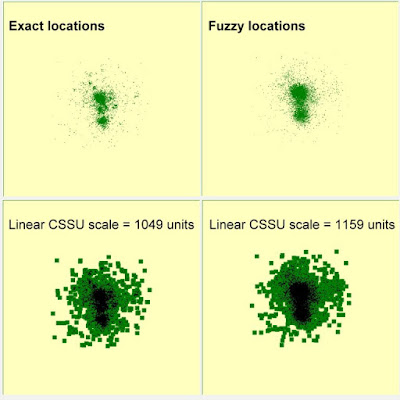Analytical Sensitivity to Fuzzy Fix Coordinates

In empirical data GPS fixes are never exact positions. A “fuzziness field” will always be introduced due to uncertain geolocation. When analyzing a set of fixes in the context of multi-scaled space use, are the parameter estimates sensitive to this kind of statistical error? Simultaneously, I also explore the effect on constraining the potential home range by disallowing sallies to the outermost range of available area. To explore the triangulation error effect on space use analysis I have simulated Multi-scaled random walk in a homogeneous environment with N=10,000 fixes (of which the first 1,000 fixes were discarded) under two scenaria; a “sharp” location (no uncertainty polygons), and strong fuzziness. The latter introduced a random displacement to each x-y coordinate with a standard deviation (SD) of magnitude approximately equal to the system condition’s Characteristic scale of space use (CSSU). Displacements to the outermost parts of the given arena was disallowed, to study how...
